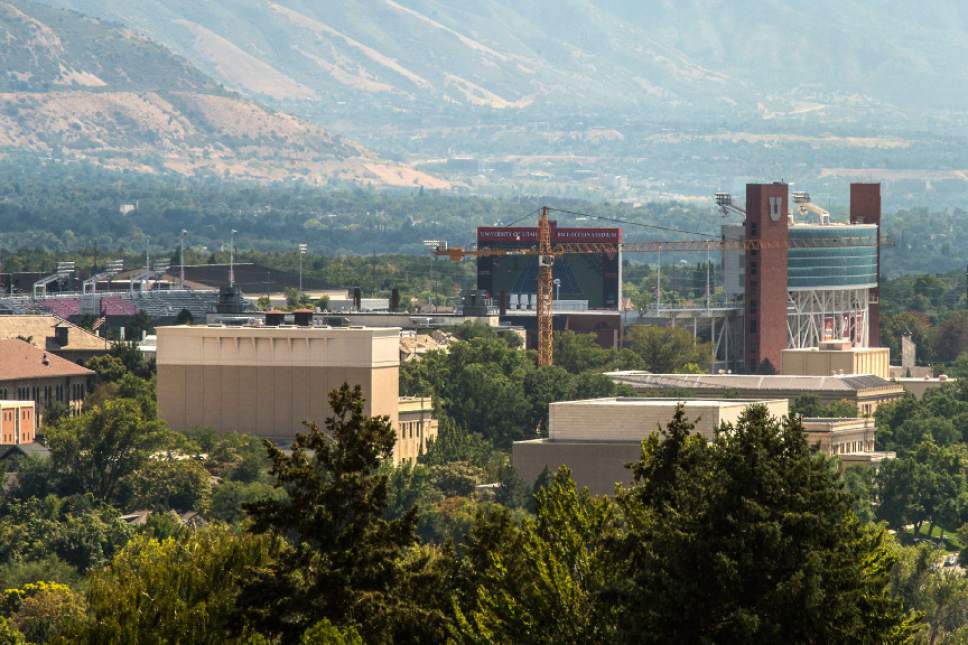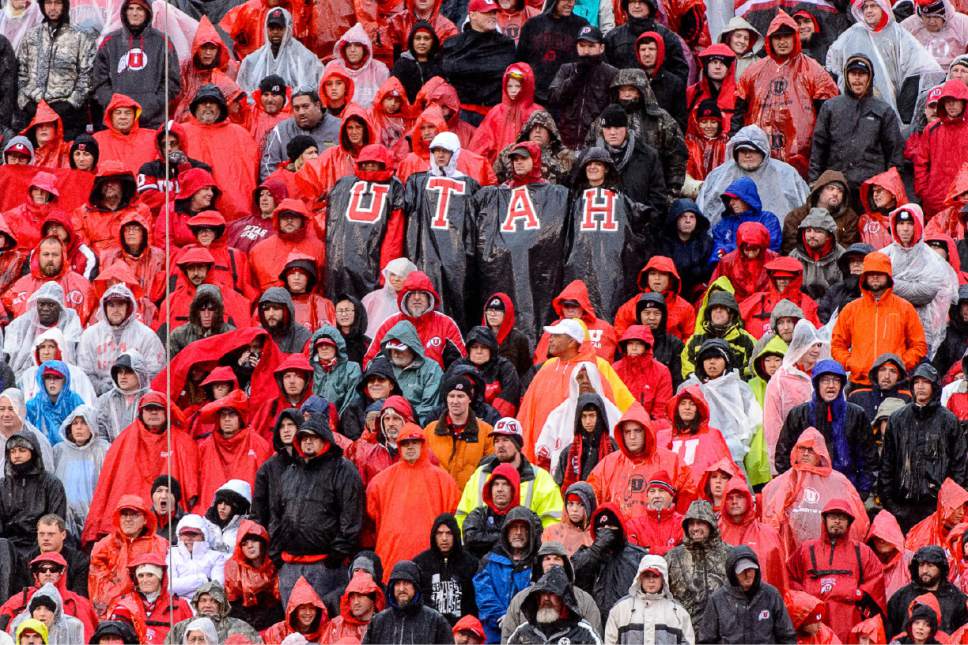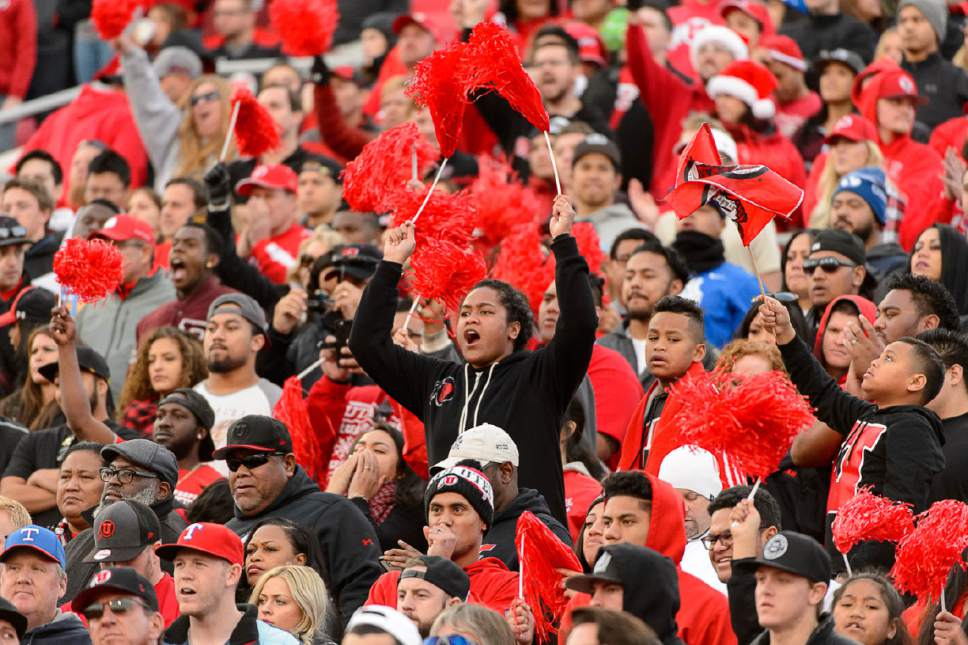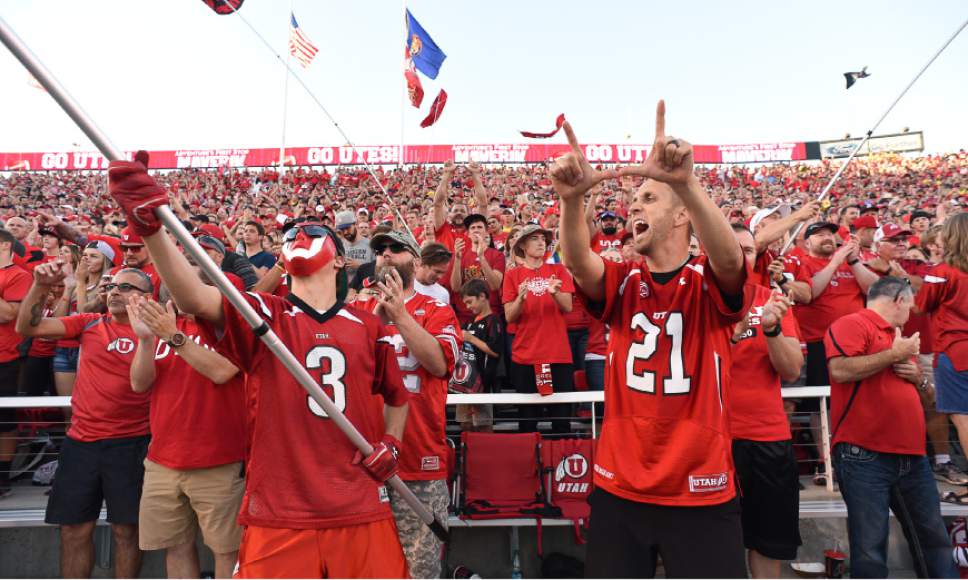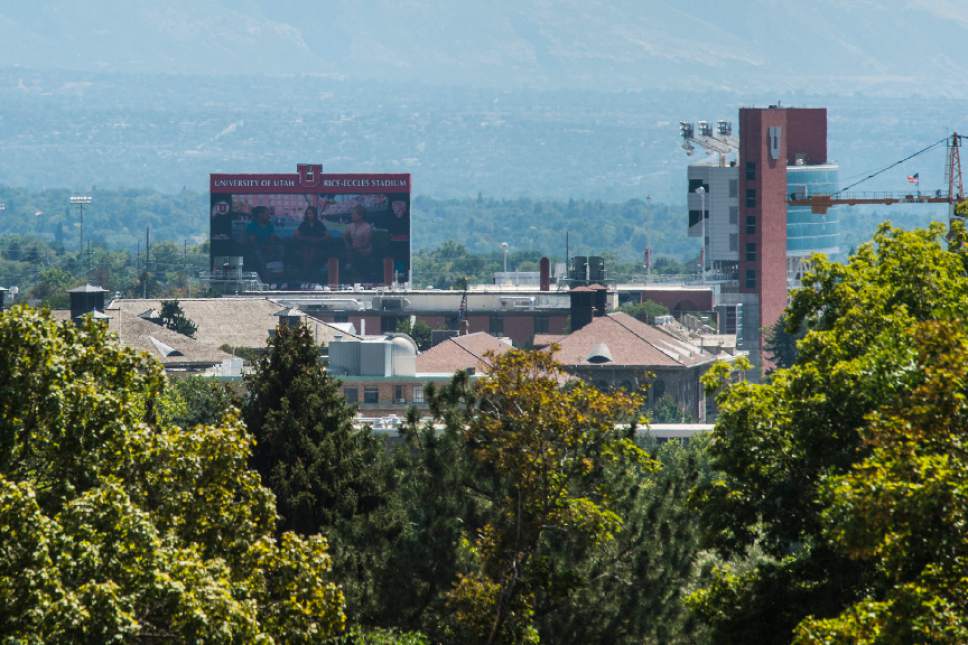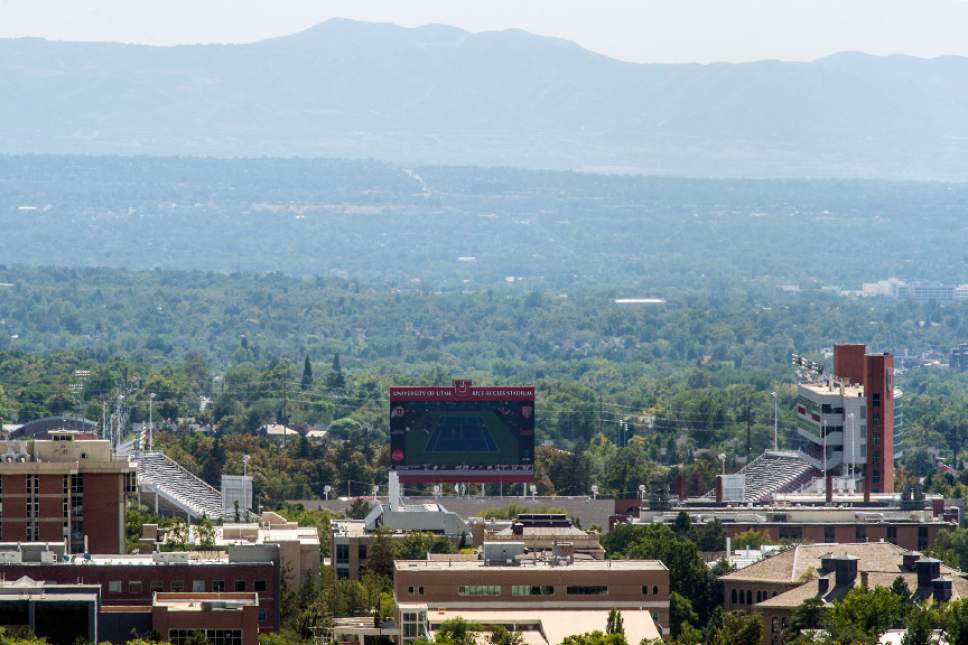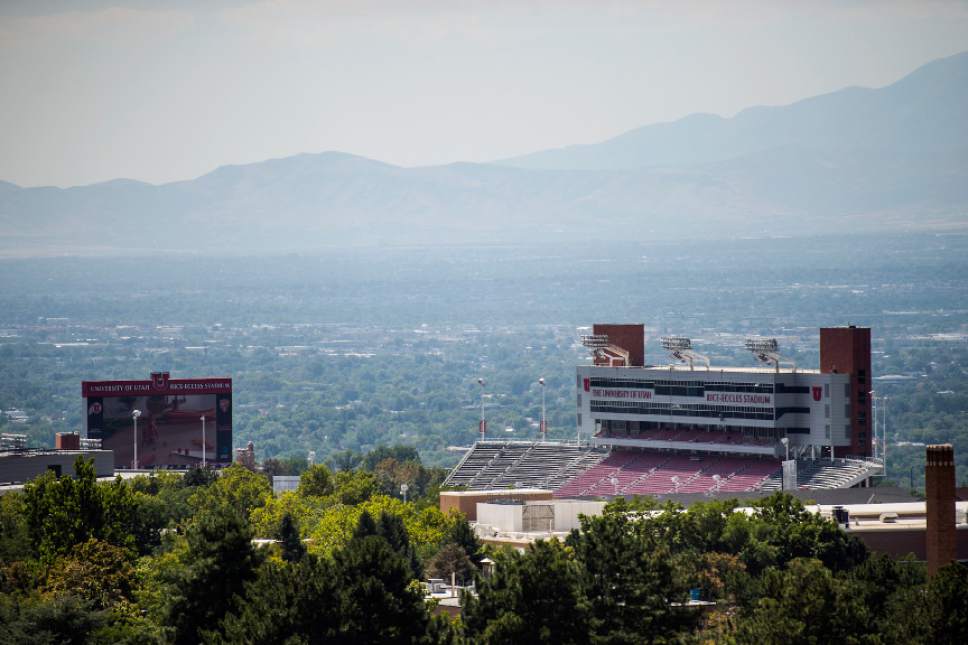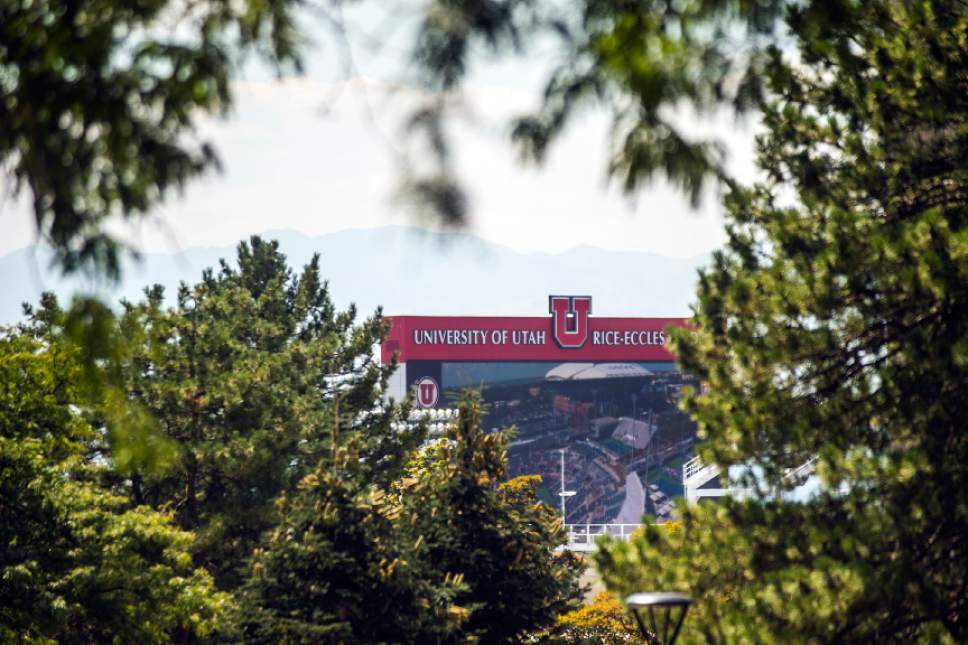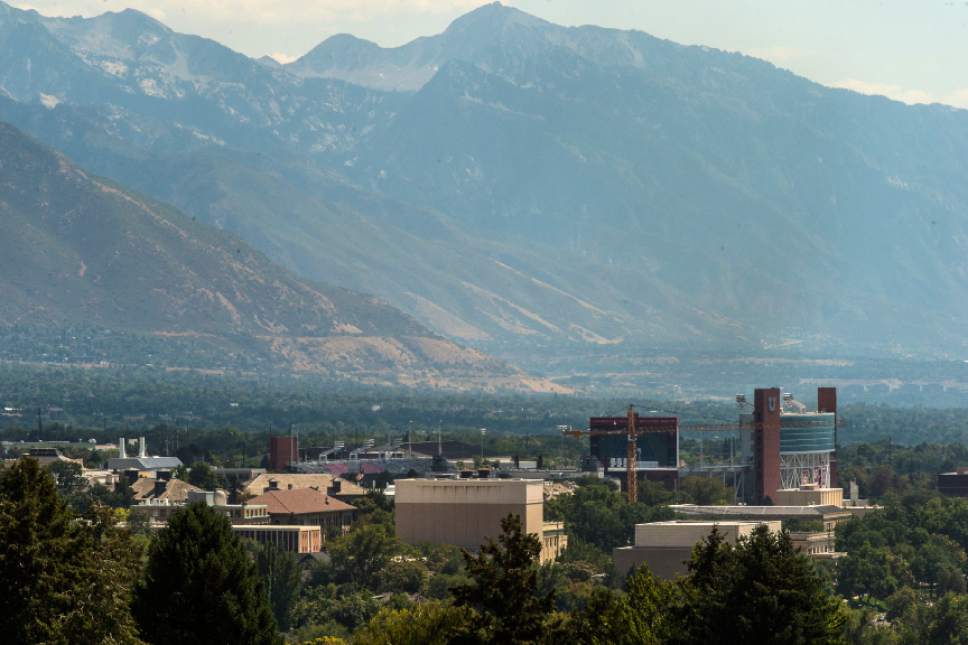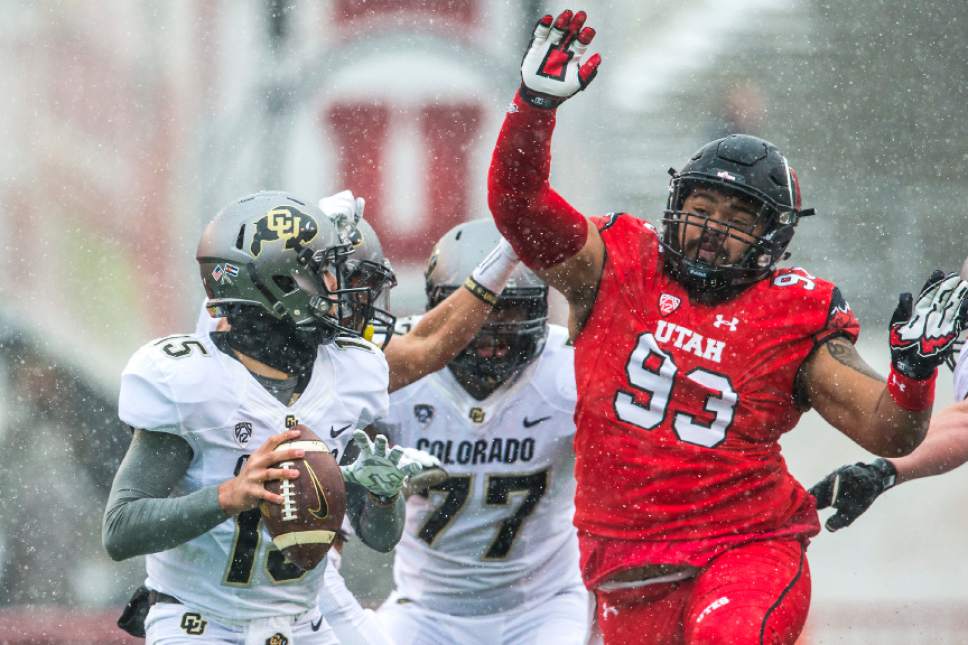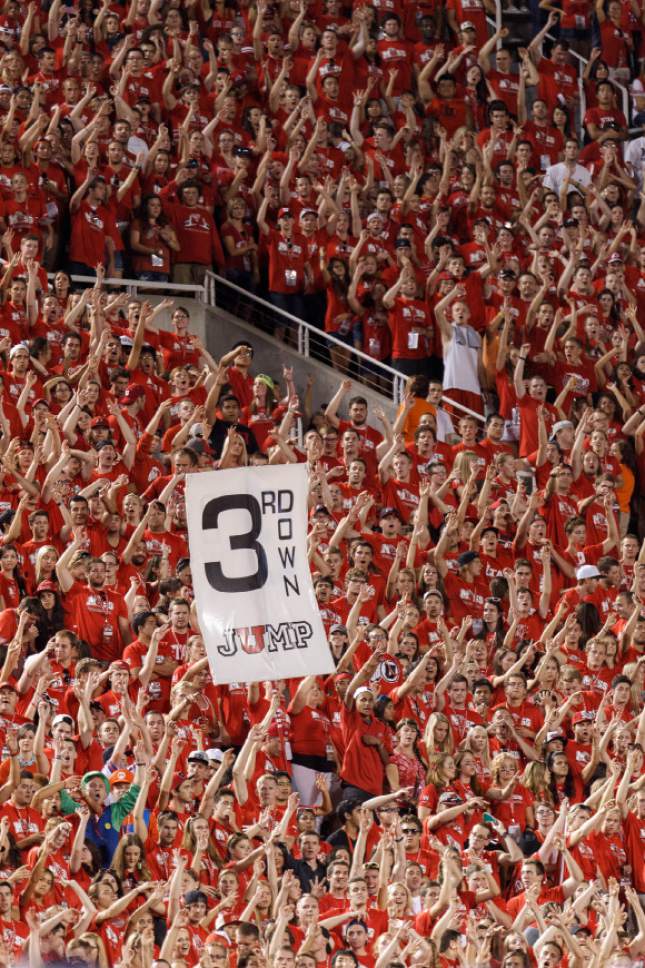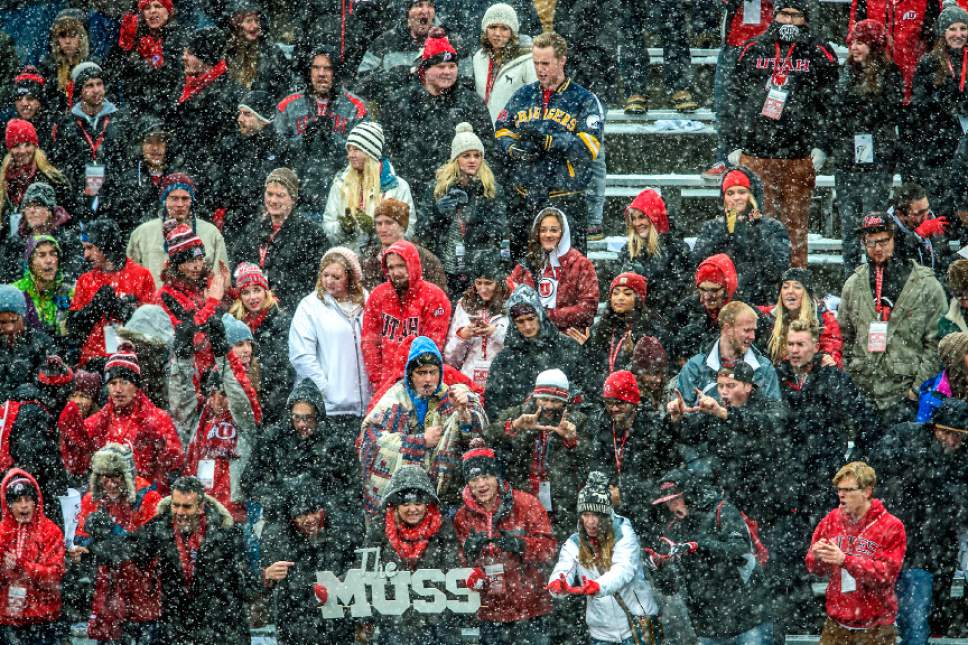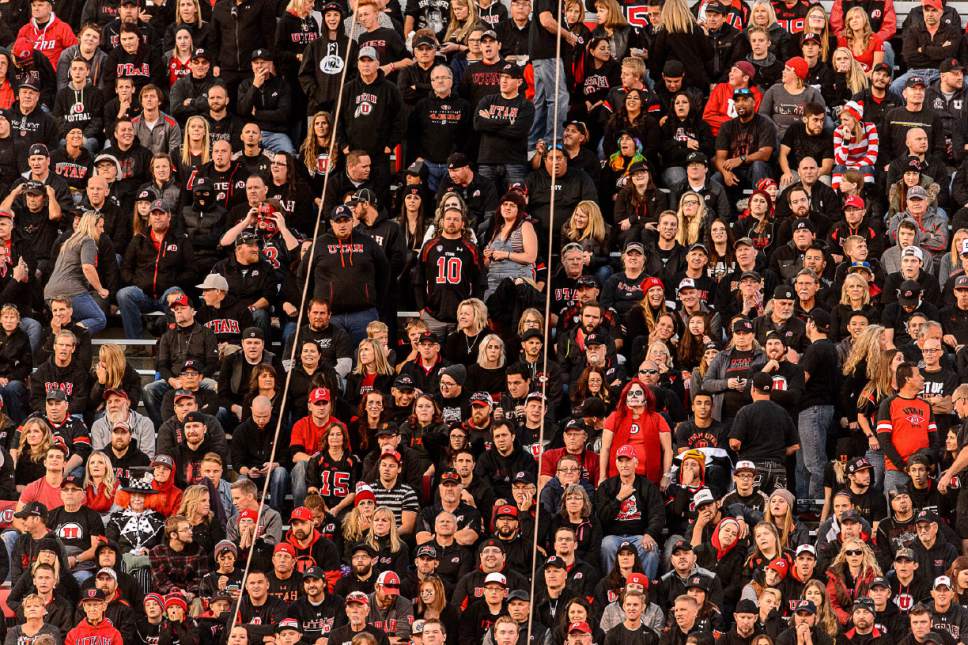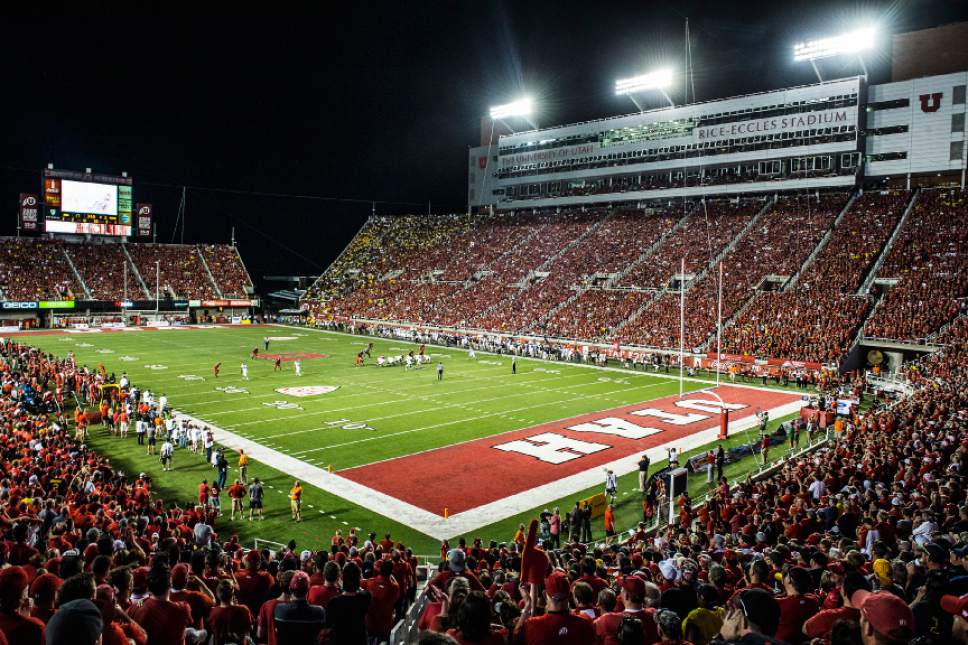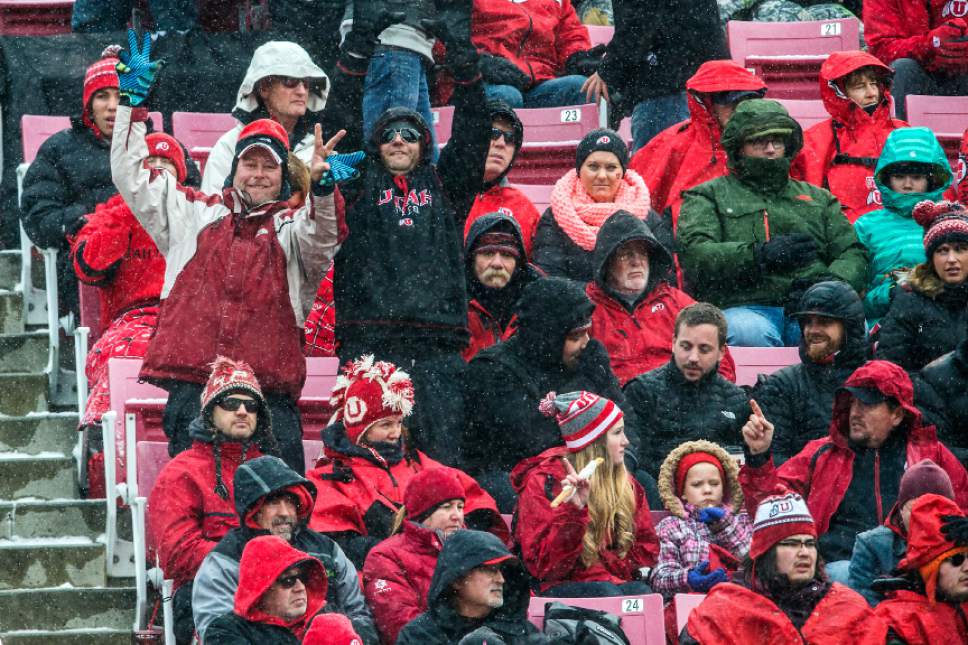This is an archived article that was published on sltrib.com in 2016, and information in the article may be outdated. It is provided only for personal research purposes and may not be reprinted.
Buying Utah football season tickets won't cost an arm and a leg — it may just cost some of your blood.
Twice a week, 26-year-old Riley Taylor heads to a blood-donation center near his office in Lehi. He comes in at 6 a.m. and leaves just over an hour later, with a little less blood and a little more money. Most of this extra cash fuels his overriding passion: going to Utah football games.
"It's part of the agreement my wife and I have," says Taylor, who is also working full time while rearing two children under age 4. "She knows it's a huge hobby for me, and I can use that money to pay for tickets and do anything Ute-related."
To be clear, Taylor says he's happy buying football tickets with his "blood money."
Like many who will be attending the Utes' six home games this year, Taylor can't imagine not being a part of the fanfare of his college football team. He likes sitting with his friends in the northern end zone, watching plays unfold live and adding his voice to the roar of the Rice-Eccles Stadium crowd on a Utah touchdown, or a big third-down stop.
But buying season tickets is increasingly difficult, particularly for faithful fans who remember days of cheap admissions, empty rows of better seats to move into and cheering on the Utes in less fortuitous times. Now with 38 straight sellouts at its 45,000-seat stadium (and selling tickets for standing room only), Utah's recent on-field success in the Pac-12 (19-7 overall in the past two seasons) combined with a robust 98 percent season ticket renewal rate have given the athletic department incentive to hike prices to meet rising budget demands.
Most ticket holders saw an increase of $15 to $25 per ticket more than last year to renew. But Utah is playing one fewer home game this year, meaning that fans are also getting significantly less bang for their bucks. Since 2014 — Utah's last six-home-game schedule — prices for every section have risen between 23 percent and 36 percent.
"It's a balancing act," Utah athletic director Chris Hill said. "We want to make sure the fans who have been loyal are not chased away. At the same time, we have to ask ourselves how can we run our department and meet the needs of our student-athletes. There's a lot of people out there who want tickets."
Selling out home games is an enviable trait for the Utes: The NCAA reported last December that college football attendance nationwide had declined for the fifth straight year. Many Salt Lake Tribune readers who responded to a query about season ticket prices said they would emphatically renew again and again, no matter the cost.
Mike Navidomskis, of Kaysville, said tickets would have to cost thousands of dollars each before he would say no more: "We are now playing 'big time' college football; it stands to reason that we now have to pay 'big time' prices."
Others are reaching a limit. Ogden resident Robert Reeder, 44, said he's willing to shell out to sit in his west-side seats with a good view of the southern goal line. But it's different for his parents, who are retired and living on a fixed income.
Reeder's folks bought him his first season tickets in 2001. Since then, he said, the Utes have had two undefeated seasons, joined the Pac-12 and made improvements to the stadium. He counts Utah's win over Michigan last year as one of his favorite memories of being in the stands. He knows rising costs are part of the deal.
"I'm OK with it, to a degree," he said. "It's different if it goes the way of, say, the Jazz games, where they've priced out the average guy, or the NFL. I could do it a lot longer than my parents could, but you might lose the familial aspects of the game."
That's one of many factors the Utes consider each year as they determine how they'll set season ticket prices, Hill said. They also look at how they compare to other schools, both in pricing and revenue, as well as their budgetary needs in the next three to five years. The slower-than-anticipated growth of the Pac-12 Networks revenue has been one of the department's challenges, and cost-of-attendance stipends and other increased student expenses have put more strain on the budget.
For the 2017 fiscal year, the Utes are expecting $10.9 million to come from football ticket sales — about a seventh of the department's revenue.
That's not to say Utah tickets aren't a deal in comparison to other markets: A season ticket in the end zone at Autzen Stadium in Eugene, Ore., will run $405 per person, compared to Utah's $199 in the northern end zone. Even some of Utah's most expensive, 50-yard-line seats, which come with a $1,110 price tag (including Crimson Club donation), would cost more than $2,000 at UCLA.
But the fans who have been coming for the longest time definitely feel the pinch. Barry Wirth has been buying tickets since 1978 and, by his own admission, hasn't missed a game (his wife has missed just three in the same span). He does keep a reminder of the old days: He bought seats from the old Rice Stadium at a fundraiser, and they are perched in his backyard.
The Cottonwood Heights resident budgets more carefully now that he's retired. He has thought about moving from his seats on the 37-yard line (with a listed $695 price) to a cheaper section. He doesn't miss the six-win WAC seasons of the mid-1980s, but he does bristle when he sees prices going up. In the end, he meets it with a shrug.
"You hate to see the costs go up," he said. "But the needs of the Crimson Club to help recruit and fund the level of students you want to win championships, it's a cost. And we still can go see football, basketball and gymnastics for the same price it costs us to buy Jazz season tickets."
Some readers told The Tribune they've cut down on travel to reduce the burden on their budgets.
Others sell tickets to one or two games on the secondary market: The proceeds can cover a good chunk of their ticket expense, particularly to big games.
But this also cuts into the atmosphere that fans also say they enjoy. Many readers described going to games with their parents, siblings and cousins — the togetherness of the games has created memories and gives meaning to the tradition.
Hill said he understands the challenges ticket buyers face. But he also is beholden to the athletes his department supports — he wouldn't want to tell them that they couldn't get new uniforms or equipment because he was "afraid" to raise ticket prices. And the Utes have made improvements to the stadium itself: This offseason, a $6 million video board and sound system were installed to enhance the game atmosphere.
"The prices don't really go down; that's kind of how it works," Hill said. "We have a great atmosphere, and we have a good team. That's of great value."
Taylor — the blood plasma donor — agrees. That's why he spent part of his extra income to buy a pair of tickets for a couple in his neighborhood who had told him they couldn't afford the tickets themselves.
They'll be with him at Rice-Eccles this Thursday, another pair of voices in the crowd, paid for by unconventional means.
"Some people think it's kind of ridiculous," Taylor said, laughing. "It's not hard to keep me as a loyal fan."
Twitter: @kylegoon
— Tribune reporter Matthew Piper assisted with this story.
— This story was informed by sources in the Utah Public Insight Network. To become a news source for The Salt Lake Tribune, go to sltrib.com/upin


